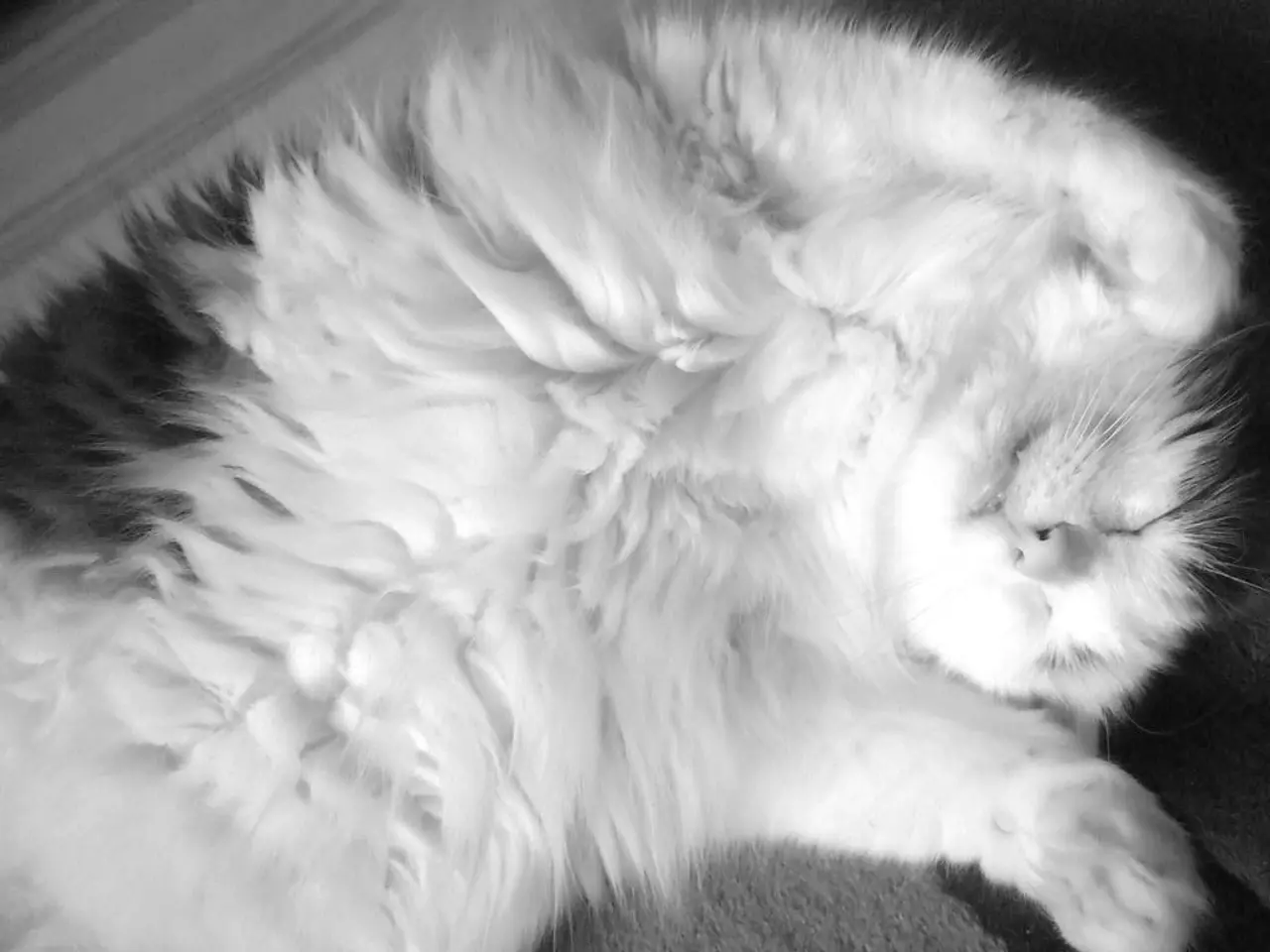Feline Melancholy: Identifying Causes, Recognizing Symptoms, and Providing Relief
Cats, while independent creatures, can experience changes in their emotional well-being just like their human counterparts. However, it's unclear whether they experience sadness in the same way humans do. Nevertheless, there are several common causes of cat sadness or depression that cat owners should be aware of.
Environmental changes, such as moving to a new home, rearranging furniture, construction, or any alteration to the cat’s familiar surroundings can cause stress and sadness. The introduction of a new baby or pet can disturb a cat’s sense of security, leading to feelings of distress. Loss of a companion, whether it be an owner or another pet, often causes grief. Boredom, due to lack of physical and mental stimulation, especially for indoor cats, can also lead to depression. Cats are creatures of habit, and changes in feeding or owner schedules can affect them emotionally. Lastly, physical pain or illness can result in depression symptoms.
Recognising signs of cat depression is essential to help your feline friend. Common signs to watch for are a loss of appetite and noticeable decrease in activity levels, reduced interest in favourite toys or activities, avoiding the owner or seeking excessive clinginess, changes in grooming, abnormal behaviours, house training mistakes, altered sleeping patterns, lethargy, or withdrawal.
It's important to note that many signs of depression overlap with symptoms of physical illness or pain, so it's crucial to rule out medical issues with a veterinarian if your cat shows these behaviours. Distinguishing depression from anxiety is also important: depression is characterised by sadness, hopelessness, and reduced energy, whereas anxiety presents with nervousness and worry; sometimes cats may have both concurrently.
To help a cat overcome depression, enrichment is recommended. This could include new cat toys, games, window perches, cat trees, or building a "catio". It's important to maintain consistent times for meals and enrichment, provide lots of love and affection, and schedule regular health checkups with your veterinarian. Provide toys that allow cats to exhibit natural behaviours like hunting, pouncing, swiping, and swatting, and offer scratching posts and perches to keep cats from becoming bored, which can lead to stress and sadness.
If your cat starts acting differently, consult your veterinarian to rule out potential physical causes for the symptoms. There is no blood test or scan to diagnose sadness or depression in cats; veterinarians rely on information from owners about behaviour changes that could signal depression.
In some cases, your veterinarian may recommend an antidepressant for your cat. Antidepressants like buspirone, trazodone and gabapentin, clomipramine, fluoxetine, sertraline, and paroxetine can be prescribed to treat symptoms in cats. However, it's important to never give your cat antidepressants (or any medication) prescribed for a human; only give your cat the exact medication and dosage prescribed by your veterinarian.
Sadness that lingers in cats might be diagnosed as depression. Signs of sadness in cats may include increased sleep, low energy levels, loss of interest in favourite activities, changes in grooming behaviours, decreased appetite, increase in litter box accidents, more vocalization, and aggressive behaviours like hissing, biting, or growling.
It's important to know what's normal for your cat and to be on the lookout for changes to their behaviour as cat sadness can be difficult to detect. Bonding activities with the cat, like play and grooming, can decrease stress and allow the cat to rediscover happiness. Synthetic cat pheromones and cat-safe food supplements can also be used to help alleviate sadness in cats.
In conclusion, while the causes and expressions of cat sadness may differ from humans, it's crucial for cat owners to be aware of the signs and take steps to help their feline friends when needed. By understanding your cat's behaviour, providing enrichment, maintaining a consistent routine, and seeking veterinary advice when necessary, you can help your cat overcome feelings of sadness and depression.
Mental health issues, such as depression, can also affect cats, just like they can affect humans. Environmental changes, the introduction of new babies or pets, loss of a companion, boredom, changes in feeding schedules, and physical pain or illness can all potentially cause depression in cats.




